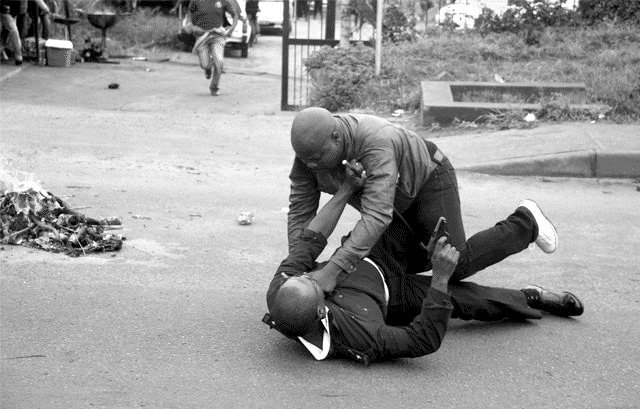The Swaziland teachers’ union and the Communist Party of Swaziland (CPS) have termed the continuous postponement of the trial of Musa Maxwell ‘Zondiyinkundla’ Myeni illegal. On November 20, at the Manzini Magistrates’ Court, the government had asked for the postponement of the case till February 2019. Myeni, a leader of the Swaziland National Association of Teachers (SNAT), was arrested on August 26, 2018, after he resisted a police officer from firing into a teachers’ protest two days before. He was clandestinely arrested in the dead of the night, from his home at Lavumisa in Southern Swaziland.
“Seemingly, the state is yet to collect evidence against the comrade, which is against the international practice, whereby a person is arrested without evidence linking him to any crime,” said Njabulo Dlamini of CPS, speaking to Peoples Dispatch.
“We, as CPS, view this as nothing but desperate attempt by the Mswati autocracy to intensify its continued oppression of the workers in the country. Maxwell Myeni is used as an example by the regime to prevent any other militant workers from participating in the struggle”.
Myeni was granted bail on August 29, 2018, with a bail amount of Swazi lilangeni E 7,000. Hundreds of members of SNAT, CPS, and Trade Union Congress of Swaziland (TUCOSWA), were present at the time of Maxwell Myeni’s release on bail. On November 19, 2018, the Manzini Magistrates’ Court resumed Myeni’s trial after around three months, and summoned him to appear on November 20, 2018.
In a statement released by the National Executive Committee of SNAT deemed it as an “indisputable travesty of justice”. The court is yet to take a decision on the request, but the SNAT leadership hopes the court will act wisely, and settle the charges as swiftly as possible.
On August 24, 2018, SNAT held a public meeting of teachers protesting against the government’s decision to set aside the cost of living adjustments (CoLA) for civil servants, which includes teachers. The meeting was held in Manzini, when seven police officers led by Manzini Station Commander Raphael ‘Skheshekheshe’ Maseko arrived at the gathering to clear the area. According to reports, the police resorted to violence against the peaceful protesters, with Maseko shooting at the protesters, seriously injuring one of the teachers, William ‘Ma-Willies’ Dlamini. The CPS have alleged in their public statement that the police were given “shoot to kill” orders, to brutally bring down the teachers’ movement.
In the middle of the shooting, Maxwell Myeni had tackled the gun-wielding Maseko, preventing a possible carnage. His arrest has provoked an outburst from political activists and trade unions apart from SNAT, including the CPS and the Trade Union Congress of Swaziland (TUCOSWA).
The teachers’ protest in August, 2018, was in response to the government’s decision to set aside the Cabinet’s proposal for cost of living adjustments (CoLA) for civil servants. The are periodic increments after review of inflation and economic growth. The decision to not even consider the CoLA came at a time when the inflation rate in the country has been over 6 per cent since 2011, much higher than the ideally recommended rate of 2-3 percent, and a stagnating growth rate of 1 per cent or lesser in the same period. All these factors make existing salaries grossly inadequate for most employees in various public services, like teachers, nurses, etc. The government’s explanation for the decision was the apparent lack of adequate funds. But, the explanation was not adequate for the workers who witnessed lavish celebrations for the 50th birthday of the autocratic monarch Mswati III, who apparently spent over E 1 billion (equivalent to USD 70 million), despite the economy being in the doldrums.
On July 6, Swaziland’s police force launched a crackdown on workers who were demonstrating against the kingdom’s policies in the capital city of Mbabane. The workers were demanding an increase in the minimum wage from the current E 600 a month (for a skilled worker) to E3,500. The minimum wages were last raised in 2011. The worker’s protest, led by TUCOSWA, also demanded an elderly pension of E1500.
SNAT, CPS and TUCOSWA, have extended their solidarity to Maxwell Myeni, with the organisations’ cadre being present in large number during his trial. Myeni has come to be hailed as a veritable hero of resistance against the absolute monarchy that has held Swaziland under a repressive regime for more than four decades.





